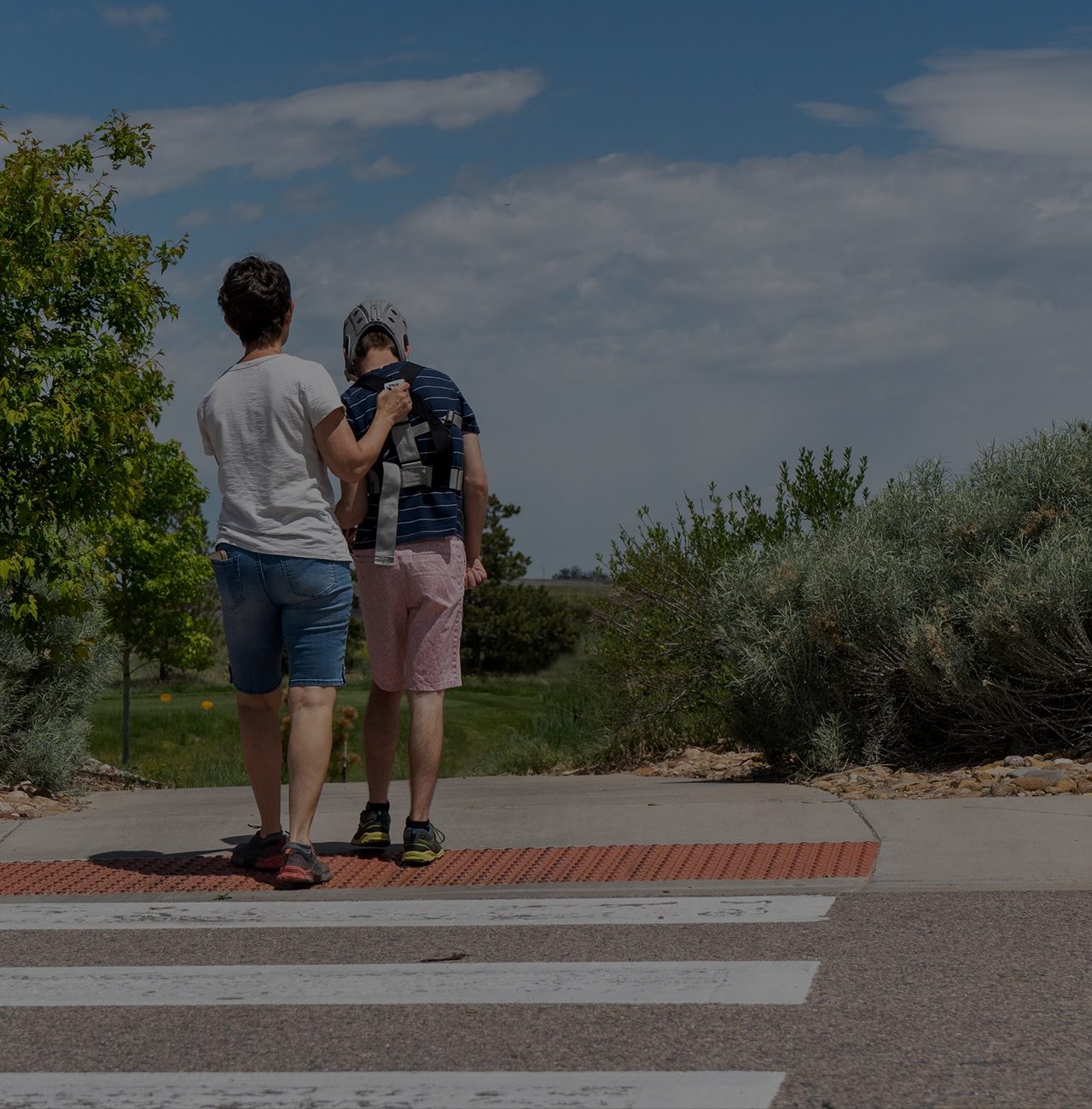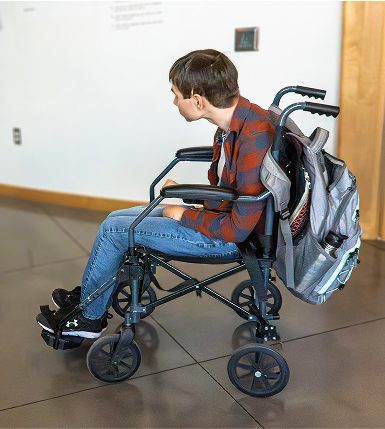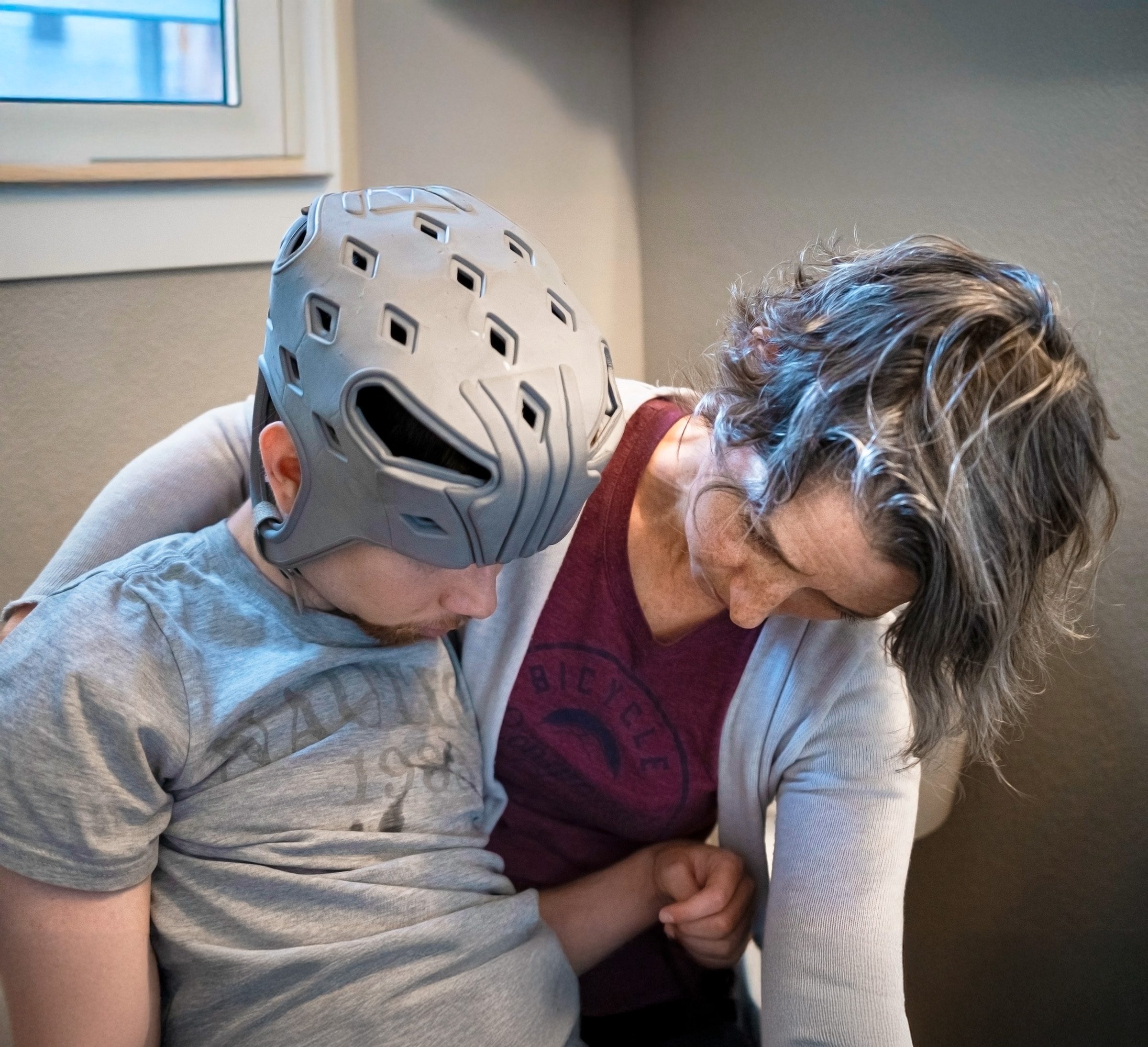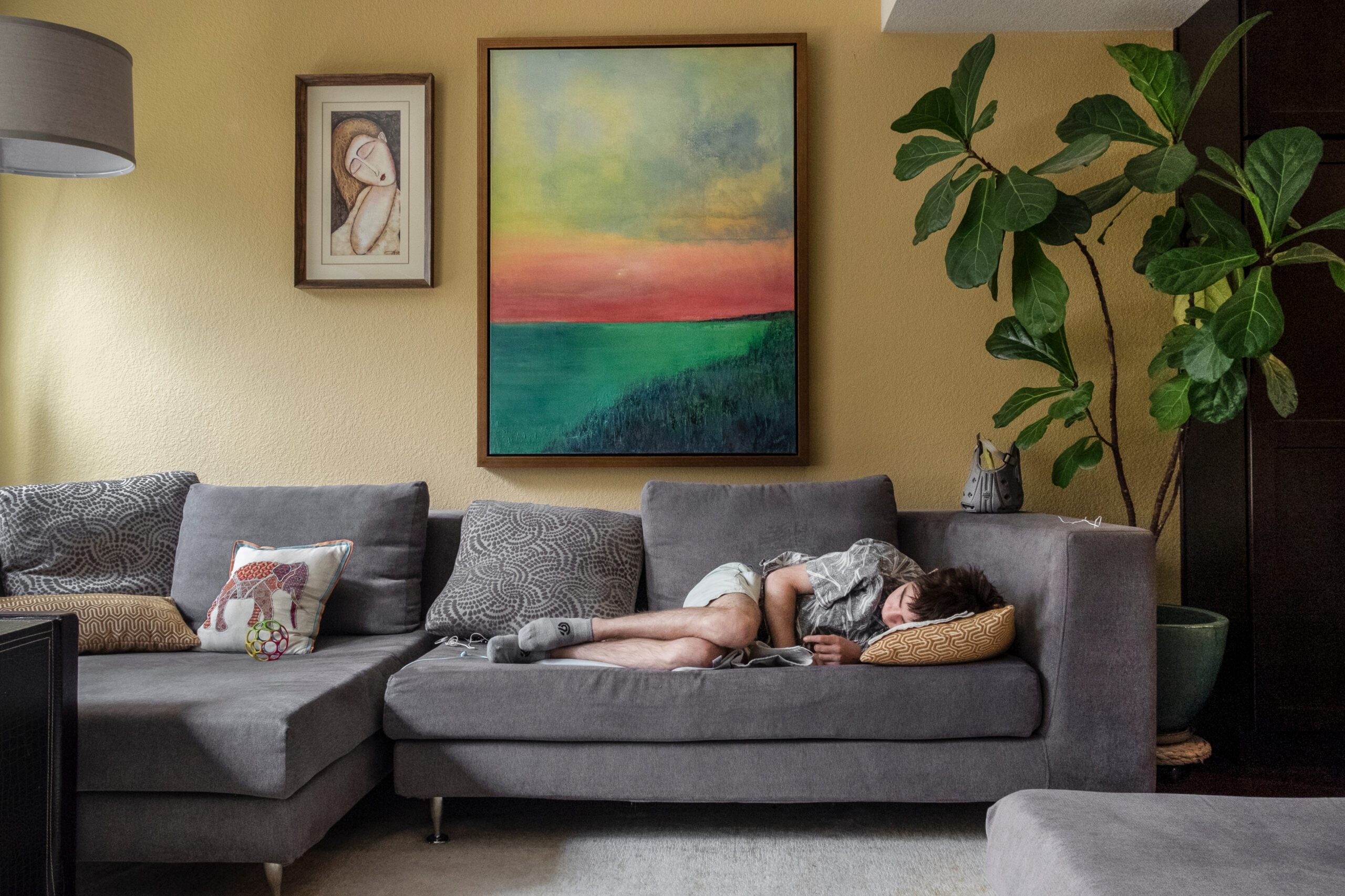About the Lighthouse Clinical Study
The purpose of the Lighthouse clinical study is to evaluate the safety and efficacy of the investigational medication, clemizole, as an additional therapy to potentially lower the number of seizures in children and adults living with Lennox-Gastaut syndrome (LGS). If someone you care about has frequent seizures from LGS, even when taking antiseizure medication(s), this clinical study may be an option.

The investigational medication, clemizole, is an oral solution that will be administered twice a day during the study.
Participants will have a 1 in 2 (50%) chance of receiving either the investigational medication, clemizole, or a placebo (a liquid that looks like the investigational medication but contains no active medication) for the first 4 months of study treatment. Neither you nor the study staff will know which one the participant is receiving. Participants who complete the first 4 months of the study will have the ability to continue to receive clemizole in the optional extension period at no cost to them. Participants must remain on the antiseizure medications they are currently taking during the study.
The Lighthouse clinical study may last up to 3½ years, and includes 4 parts: Screening, Study Treatment, Long-term Extension, and Follow-up. Participants who complete the first 4 months of the study will have the ability to receive the investigational medication (clemizole) for an additional 3 years.
Screening
Tests and procedures are done to see if a potential participant qualifies
Study Treatment
Participants will receive the investigational medication or a placebo
Long-term Extension
All participants will receive the investigational medication
Follow-up
The study team will check on the participant’s LGS symptoms and overall health 2 weeks after receiving the last dose of the investigational medication
Seizure and medication diary: You will fill out a seizure and medication diary at home to keep track of the participant’s seizures and when they take the investigational medication. The seizure diary is important to help researchers understand the effects of the investigational medication on the participant’s seizures.
How to Qualify
People living with LGS may be able to participate in this study if they*:
- Are at least 2 years old
- Were diagnosed with LGS
- Had onset of seizures before turning 11
- Have lack of seizure control despite taking 1 to 4 antiseizure medications
- Have frequent seizures (an average of 4 seizures per month for the last 2 months)
- Are not enrolled in another clinical study
*This is not a complete list of study requirements. The study doctor will review all the requirements with you and/or the potential participant.


Why Participate
If the person living with LGS qualifies and decides to participate, they will receive:
- All study-related care and the investigational medication at no charge
- Assistance with study-related travel expenses (including food and lodging), as needed
- Close monitoring by a study doctor and study team who specialize in LGS
- The opportunity to help researchers learn more about LGS
Safety while participating in the Lighthouse clinical study is our highest priority. If any questions or concerns arise, a study team member is available to help.
Participation in any clinical study is always voluntary. Participants are free to leave the study at any time and for any reason. Privacy will be maintained throughout the study.

Download the Study Brochure
The study brochure provides information similar to this website to help you discuss participation in the Lighthouse clinical study with the potential participant’s doctor. You can also share it with someone that may want to learn about the study.
About Lennox-Gastaut Syndrome (LGS)
LGS is a rare type of severe epilepsy that develops in young children.1 People living with LGS have more than 1 type of seizure, and their seizures happen frequently.2
People living with LGS commonly have delays in their development and intellectual abilities that can get worse as they get older.3 They may also have behavior problems, including hyperactivity, aggression, and difficulty paying attention.2
Many medicines available today do not reduce seizures enough for people living with LGS, even when taking multiple medications.3
References:
- Lennox-Gastaut Syndrome. National Institute of Neurological Disorders and Stroke. Accessed November 4, 2024. https://www.ninds.nih.gov/health-information/disorders/lennox-gastaut-syndrome#:~:text=Children%2C%20adolescents%2C%20and%20adults%20with,Atypical%20absences%20(staring%20spells)
- Lennox-Gastaut Syndrome. LGS Foundation. Accessed November 4, 2024. https://www.lgsfoundation.org/about-lgs-2/what-is-lennox-gastaut-syndrome/#:~:text=Many%20with%20LGS%20survive%20into,a%20seizure%20resulting%20in%20pneumonia)
- Lennox-Gastaut Syndrome (LGS). Epilepsy Foundation. Accessed November 4, 2024. https://www.epilepsy.com/what-is-epilepsy/syndromes/lennox-gastaut-syndrome#What-is-Lennox-Gastaut-syndrome?
Frequently Asked Questions (FAQ)
Many medicines available today do not reduce seizures enough for people living with LGS. More medicines are needed, but new medicines must first be evaluated in clinical studies. This study depends on volunteers to participate to help researchers learn more about the effects this investigational medication has on reducing the number of seizures from LGS.
The study doctor and staff understand that the people living with LGS may have special needs, and they may be able to help with any questions or concerns you have with participating.
The purpose of the Lighthouse clinical study is to evaluate the safety and efficacy of the investigational medication, clemizole, as an additional therapy to potentially lower the number of seizures in children and adults living with Lennox-Gastaut syndrome (LGS). If someone you care about has frequent seizures from LGS, even when taking antiseizure medication(s), this clinical study may be an option.
The study will also look at:
- If clemizole affects the general well-being of participants with LGS
- If there are any safety concerns for participants
The Lighthouse clinical study may last up to 3½ years, and includes 4 parts: Screening, Study Treatment, Long-term Extension, and Follow-up. Participants who complete the first 4 months of the study will have the ability to receive the investigational medication for an additional 3 years.
You will fill out a seizure and medication diary at home to keep track of the participant’s seizures and when they take the investigational medication. The seizure diary is important to help researchers understand the effects of the investigational medication on the participant’s seizures.
Yes. Participants must stay on the antiseizure medications they are currently taking during the study. There are certain antiseizure medications that are not allowed during the study, so participants should not start, stop, or make any changes to their current medications without talking to the study team first.
Yes. If you require financial assistance to get to a required study visit, the sponsor will provide travel concierge services or reimbursement of reasonable travel expenses for the participant and caregiver.
Yes, participants can still see their regular physician while participating, but it will not replace the necessary study visits required with the clinical study team.
No, during the double-blind portion of the study, there is a 50% chance the participant will receive clemizole. Participants who complete the double-blind portion of the study (the first 4 months) and are able to continue in the long-term extension will have access to clemizole for up to an additional 3 years.
People living with LGS may be able to participate in this study if they*:
- Are at least 2 years old
- Were diagnosed with LGS
- Had onset of seizures before turning 11
- Have lack of seizure control despite taking 1 to 4 antiseizure medications
- Have frequent seizures (average 4 seizures per month for the last 2 months)
- Are not enrolled in another clinical study
*This is not a complete list of study requirements. The study doctor will review all the requirements with you.
During the study, the participant will receive all study-related treatment at no cost. This includes the investigational medication or the placebo during the Study Treatment period, and the investigational medication during the Long-term Extension period.
The most common known side effect of clemizole is feeling tired or drowsy. Other less common side effects are headache, nausea, and blurred vision. In previous clinical studies, the side effects went away when the medication was stopped. There may be other side effects that we do not know about at this time. If the study doctor learns of other side effects of clemizole, they will let you know during the study.
During the study, the participant’s seizures and LGS symptoms may improve, stay the same, or get worse, and they may have side effects from the investigational medication. They may also benefit from regular visits and assessments of their LGS and overall health.
A placebo looks like the investigational medication but contains no active drug. Researchers use a placebo to see if the investigational medication works better or is safer than taking nothing. Participants will have a 1 in 2 (50%) chance of receiving the investigational medication, clemizole, or a placebo (a liquid that looks like the investigational medication but contains no active medication) for the first 4 months of study treatment. Neither you nor the study staff will know which one you are receiving.
Yes, participation in clinical studies is always voluntary. If participants decide they no longer want to be in the study, they are free to stop at any time, for any reason, without any effect on their future medical care. If they leave the clinical study early, they need to talk to the study doctor about leaving so they can schedule a final evaluation.
Yes, the participant will get paid a stipend based on your clinic/institution policies.
Before agreeing to participate, the study team will review all aspects of the clinical study with the potential participants, including the study’s purpose, possible benefits and risks, assessments, procedures, etc. Everyone will have the opportunity to ask the study team questions to decide if participating is the right option.
No, the doctor does not have to give the participant permission to participate. However, feel free to talk to the doctor about participating in the Lighthouse clinical study. With permission, the study doctor will keep the doctor currently treating the potential participant updated about their condition during the clinical study.
The study doctor and staff will handle all personal health information in a confidential manner. Personal health information includes both a participant’s study data and original medical records. To protect privacy, the participant’s and/or caregiver’s name and other personal information will not be identified unless necessary for study purposes. Instead, the participant and/or caregiver will be identified only by a number.
About Clinical Studies
A clinical study, also called a clinical trial, is conducted to learn whether an investigational medication is safe and effective for use in people with the medical condition being studied.
Clinical studies must follow strict scientific standards to help ensure the safety of the participants while researchers learn more about the investigational medication.
An investigational medication is a substance that is being tested in clinical studies. An ethics committee has reviewed the clinical study for testing in people, and the investigational medication may or may not be approved by a country’s regulatory body, such as United States Food and Drug Administration (FDA), European Medicines Agency (EMA), etc, for treatment for the condition being studied.
